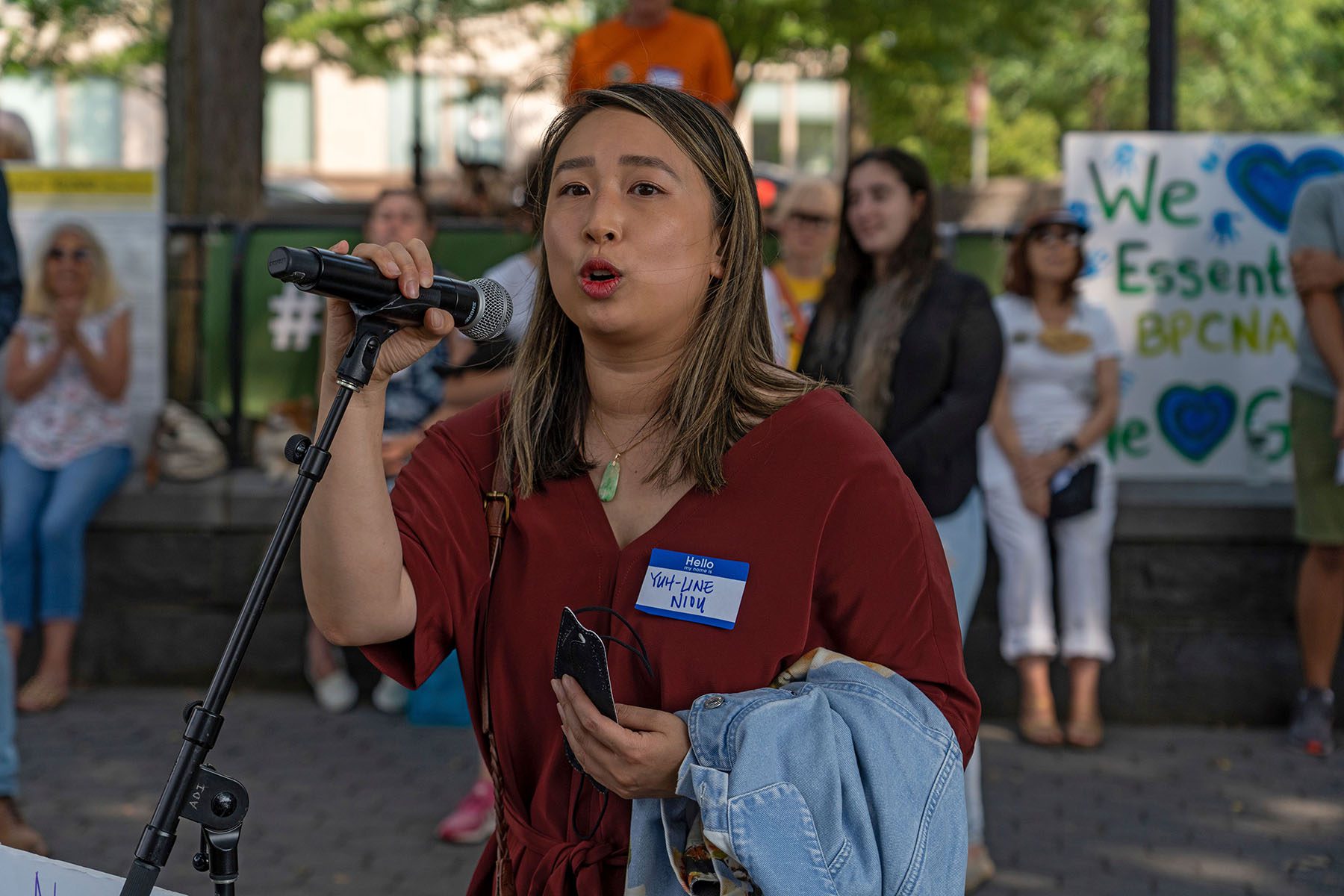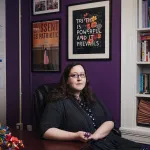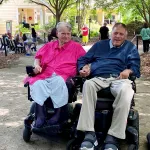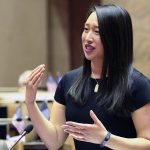When New York state Assemblymember Yuh-Line Niou announced she was running to represent New York’s 10th District in Congress, the field was already crowded. Multiple candidates with national profiles were running, including former New York City Mayor Bill DeBlasio, sitting Rep. Mondaire Jones, and Daniel Goldman, a Levi Strauss heir who served as the lead House lawyer for the first impeachment inquiry against former President Donald Trump. DeBlasio has since bowed out of the race.
Two politicians with local political experience, Niou and Councilwoman Carlina Rivera have surged to the front of the pack in polls. The district is heavily Democratic, and the winner of the primary is likely to go to Congress.
Niou is one of only three openly autistic elected legislators in the United States – Pennsylvania state Rep. Jessica Benham and Texas state Rep. Briscoe Cain are also on the autism spectrum. If she wins, Niou will make history as the first openly autistic member of Congress.
I am one of only a few openly autistic journalists in the United States, though times are changing. I recently spoke with Niou to discuss her experience as a politician with a disability, as well as how that disability has shaped her approach to politics.
This interview has been edited for length and clarity.
Sara Luterman: How did you get your autism diagnosis?
Yuh-Line Niou: I was actually diagnosed as a young adult. I talk about it pretty openly, but it’s just one of those things…I actually didn’t know I was autistic at all. Women and people with different cultural backgrounds are harder to diagnose or are diagnosed later in life.
When you look at my report cards, it’s pretty obvious in grade school, but it’s just nobody ever thought that, you know, I was autistic, even when I exhibited all those traits. I think because I’m Asian American, a lot of times instead of thinking, “Wow, she’s not verbalizing certain things,” they just thought that I didn’t speak English, and so dismissed a lot of signs.
I still remember my mom was so upset that I had to be retested for certain standardized tests because they thought that I was cheating, because I was scoring in the 99.9 percentile, and they thought I couldn’t speak English. And it was the English portion of the test. My mom was like, “Look, she’s not cheating. Did anybody else score that high? Who could she have cheated off of?”
I also used to read in class instead of doing certain things I was supposed to be doing. If I got asked to give up my book, I’d get upset. I almost got suspended from school, actually, for reading too much.
That happened to me, too!
My mom had to defend my reading in class. She was like, “We try to encourage kids to read. What’s wrong with this school?” I had to sign some weird contract saying that I would not check out any books until Friday after school, and I have to give them all up before Monday morning.
In retrospect, some things seem so obvious, but nobody diagnosed me until I was much older. And then when I got my diagnosis, it was strange. There’s stigma that I had internalized, and I didn’t know I had internalized. But it was also such a sigh of relief.
I listen to a lot of folks talk about their journeys. [Other autistic] people have written to me, and it’s crazy how similar our stories are — beautiful, actually. I appreciate that my story has given a lot of relief to some parents and has also helped a lot of young people navigate their world.
Is there anything about your experience as an autistic person that has informed your policy?
I’ve been shaped by being autistic. I have had to fight to carve out space for myself and others, from a young age, to get a seat at the table. I think that the disabled and neurodiverse communities have been left out of the conversation and policymaking process for a very, very long time. Even when we have people making considerations for us, it’s really different than doing it ourselves.
I think because I’ve had to struggle a little to make sure my needs are being met, I understand better that we should be fighting for something different. That’s why representation matters. That’s why we need to send people with diverse backgrounds to every different leadership role available. That way we can bring our lived experiences to the legislative process. The world we live in is often dominated by hate and exclusion. The only way that we can fight back against that is to be at every level of government. We need to become more visible to ensure our voices are heard.
What are the laws around caregiving you’re proudest of helping to pass during your time with the New York State Assembly?
One of the biggest is fair pay for home care [workers]. We increased [the] minimum wage for home care workers. I also pushed … language access. Collection agencies, when they send their bills, the font is so small. For people who have a hard time seeing, I wanted it to be in a big font. That’s it. It was such a simple, simple bill. And yet I had to debate it four times on the floor. Four times, four years that it didn’t pass, and we finally passed it. But it was so frustrating. You know, the governor vetoed it twice.
You’d think you’d want people to be able to read the bill so they could pay it.
I know! It’s so basic. And like the Republicans kept on saying, “Oh, this is onerous on the companies.” Because they have to send out maybe an extra sheet of paper.
Basic access shouldn’t be so hard to get. Every single bill that I support, I always try to protect more people from unfair, deceptive, abusive and predatory practices, or to help people to be able to get more access. There’s been so many predatory practices towards our communities, disability communities and immigrant communities. I don’t have the words.
Two Chinese seniors once came into my office telling me they needed help signing up for their senior Metro cards. I delved a little bit deeper and told them they could qualify for Access-A-Ride, which is free transportation for seniors and people with disabilities in New York City. And they said it was too expensive for them. I was like, “What do you mean expensive? It’s free.” They said the Access-A-Ride wouldn’t take you to your destination unless you paid the driver. They said it very blasé. So I did a little more research. It turned out some Access-A-Ride drivers were taking advantage of seniors and people with disabilities.
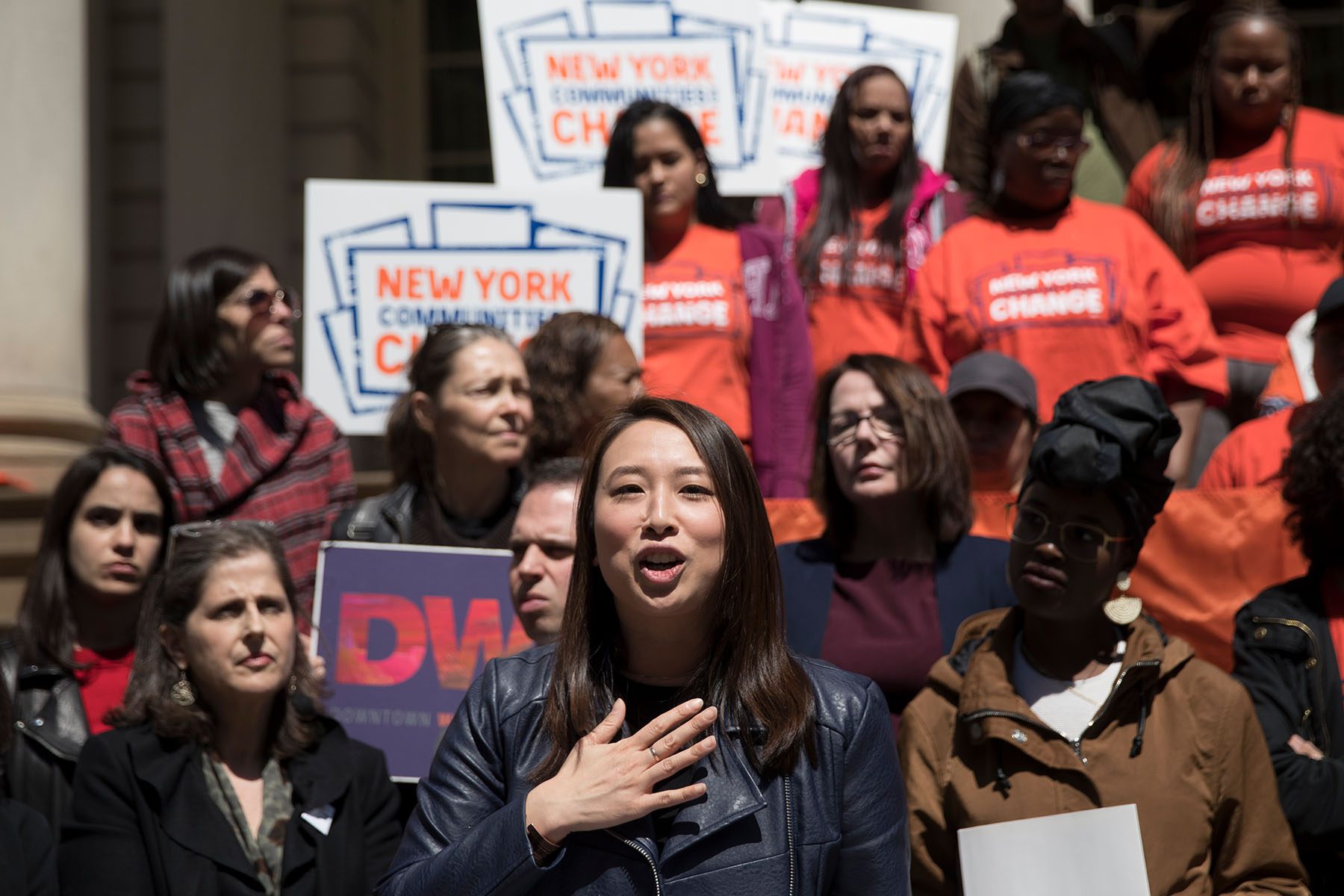
A common misconception about autism is that it reduces empathy – it’s a misconception that really bothers me, as an autistic journalist. Can you tell me a little bit about the role empathy plays in your politics as an autistic politician?
For me, … it’s essentially the opposite. I have so many emotions sometimes that I don’t even know how to express them. Real empathy is understanding that there are a lot of different perspectives. When you’re talking about policy, it’s really good to have the ability to see how somebody else is thinking or feeling. I think in some ways, [autism] is my superpower. I look at things like cause and effect. It helps me to think about all of these different perspectives when I am making policy. Everybody is right from their own lens. I see other people’s perspectives differently, in ways a non-autistic person might miss.
I think a big strength of your campaign is your ground game and the importance of local politics in your political career. Would you mind talking a little bit about how your connection to your local community has shaped your strategy?
All politics are local. It’s really important to make sure that everybody who is running for office is always rooted in their people. My base has always been the folks I know, the people I’ve talked to. I have community roots. I try to be one of the most accessible legislators.
Is there anything that I didn’t ask about that you think is really important for people to know?
Let’s go back to policy. We have to have a child tax credit system that’s permanent. The Child Tax Credit was successful. It should be a no-brainer. Passing legislation that cuts child poverty in half should be obvious. The child care system in this country is really broken. We need to invest in significant reforms to make sure that this is a system that works for everyone. Right now, it’s really hard for folks to find child care. Especially families where they’re juggling work or where one parent has a disability. It’s really hard to find help. We need to make this a priority.
Home care for seniors and people with disabilities should also be a priority. The American Jobs Plan originally included a $400 billion federal investment in home and community-based care. We need to revisit that legislation, to allow states to hire home health aides and guarantee them fair wages. We’re losing our home care workers.
I’m really supportive of the Domestic Workers’ Bill of Rights, which would extend labor rights and protections to anybody who works in other people’s homes.
I’m also very passionate about making improvements to our public transit system.
So you like transit? That’s pretty stereotypical for an autistic person.
Oh, so stereotypical. But it’s been decades since the [Americans with Disabilities Act] was passed and some people still can’t even get on the train. We should be giving people access to the whole entire world. We’re not doing it.
